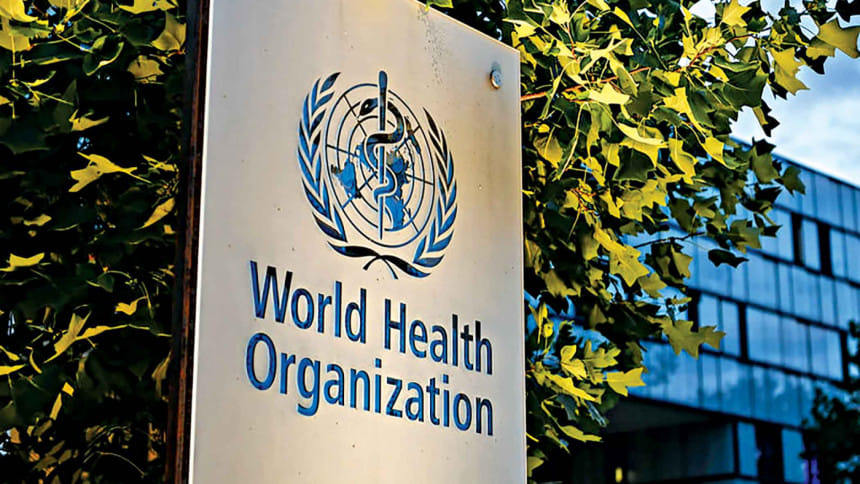Vaccine nationalism, global public good and the poor

In a desperate move to inoculate from Covid-19, we are witnessing a kind of vaccine nationalism worldwide, which has manifested in a race to procure vaccine doses, particularly by those having the means and power to do so. The Director General of the World Health Organization (WHO) called this situation a "catastrophic moral failure" in sharing Covid vaccines. He also noted that 44 bilateral deals were signed last year and at least 12 have already been signed in 2021. This "me-first approach" has left the world's poorest and most vulnerable at risk. By mid-January more than 39 million vaccine doses had been administered in 49 higher-income countries, against almost no vaccination in the low-income countries.
The Duke Global Health Innovation Center tracks global vaccine procurement. It found high-and upper-middle-income countries have collectively reserved nearly 5 billion vaccine doses, through bilateral agreements between governments and vaccine makers, known as "advance market commitments," where governments commit to purchase doses upfront for priority access once the vaccine is approved. The US reportedly has entered into over six of such bilateral deals, totalling for more than 1 billion doses—more than enough to inoculate their entire population.
This go-it-alone approach risks perpetuating harm to public health and the global economy. Some research shows that equitable distribution of vaccines could avert nearly twice as many deaths against the option of it being available to only high-income countries. Another research by Rand Corporation concluded that inequitable vaccine distribution could cost the global economy up to USD 1.2 trillion in GDP. Conversely, if low-and middle-income countries were granted equal access, the cost to the global economy would be considerably less.

But vaccine nationalism is not new. The present race to hoard Covid vaccines harks back to what happened in 2009 during the H1N1 flu pandemic. Australia, the first country to come up then with a vaccine, blocked exports while some of the wealthiest countries entered into pre-purchase agreements with pharmaceutical companies. When the pandemic began to recede, developed countries offered to provide vaccine doses to poorer countries. But H1N1 was a milder disease with far less impact than Covid-19, which has already infected more than 25 million worldwide and killed almost a million people.
The problem with vaccine nationalism is that it puts countries with fewer resources and bargaining power at a disadvantage. But when countries with a large number of cases lag in procuring the vaccine, the virus will continue to disrupt global supply chains and, as a result, economies the world over. Interestingly, despite the fact that vaccine nationalism runs against global public health principles, there are no provisions in international laws that prevent pre-purchase agreements. So, what could be the alternative for the poor and less-fortunate?
To face this challenge, some rich countries support a programme on a very limited scale—the Covax initiative, launched in April 2020 by the WHO, the European Commission, and France, meant to help participating states negotiate procurement of vaccine and donate to poor countries, to vaccinate about 20 percent of their population. Although this is quite insufficient, it would be adequate to protect the elderly and health-care workers. The Bill Gates Foundation estimates the cost of supplying low-income countries with vaccines as likely to be USD 25 billion. By the end of 2020, Covax had raised only USD 2.4 billion and pre-ordered enough doses to vaccinate a billion people, but it is still far from the additional USD 5 billion needed to finance its rather unambitious programme.
But viruses mutate all the time. While many mutations are innocuous, the larger the population infected at any time, the higher the probability that a hazardous variant, or possibly a new strain, will appear, as a certainty in future. So, the prevailing combination of vaccine nationalism and half-open border policy is a losing game. In an open world where rich countries attempt to protect their populations, while poorer countries cannot, contagion would invariably cross borders and defeat the most sophisticated health protection policies.

As viruses ignore political borders, they create far-reaching externalities, as negative spill-overs, both for the economy and for public health, which is itself a global public good (GPG). Here is a gap in global consensus on what constitutes a national vs global health problem, or a GPG. Some operations at national level provide not only benefits to the country, but also global benefits. These include competence in surveillance and rapid reporting of communicable diseases such as Ebola, flu, cholera, etc. Such knowledge of country health systems has induced the World Bank to manage contributions to new financing mechanisms, as the Advance Market Commitment and the International Finance Facility for Immunisations. There are insurance or re-insurance programmes for countries to subscribe to, which could promptly help finance a rapid response to the spread of a pandemic.
While the world is getting increasingly interdependent with more and more collective action problems like epidemics and climate change, global leaders are not coming to terms with adequate provisions of GPGs. The Ebola and other recent outbreaks like Nipah or Zika have renewed attention to financing and delivering GPGs for health. Reports suggest that only about 20 percent of all donor support for public health is directed toward solving these types of GPGs.
One reason for underfinancing of such GPGs is that it is still conceptualised in the traditional narrow economic sense. It is based on framing of a public good (PGs), as "non-rival" (if one person consumes it, this does not reduce its availability to others) and "non-excludable" (no one can be denied access). This narrow understanding captures only a subset of "traditional" GPGs, like the generation and sharing of health-related knowledge, the publication of research in open access journals, the setting of international health norms and standards, etc. We may recall that PGs were defined as non-excludable & non-rivalrous in consumption almost 70 years back by economist Samuelson (1954) when there were not many common global problems. But PGs as a living category are variable social constructs, which arise in response to evolving national and global needs, as matters of policy choice.
So, a wider view of GPGs was advocated by Inge Kaul and her colleagues at UNDP since the late 1990s and recently by the World Bank. The Bank's report, "Multilateral Development Banking for this Century's Development Challenges", recommends for a new mandate to promote GPGs critical to development as its major priority, which gave examples of GPGs that went beyond the traditional economic view, such as antimicrobial resistance and climate mitigation. Under the wider framing, even poverty reduction and adaptation to climate impacts can be viewed as GPGs, as these actions bring peace and stability at a global scale. The WHO's Department of Health Systems Governance and Financing has also launched a knowledge programme on "Financing Common Goods in Health".
Another serious problem in global investment regimes is that while public funding even for R&D to find cures dominates in facing such emergencies, it is the private sector pharmaceuticals that reap the disproportionate benefits. Reports show that between January and August 2020 about USD 40 billion were mobilised for funding vaccine R&D, in addition to planning for vaccine manufacturing and distribution. Major share of this funding was provided by governments, bilateral and multilateral organisations and International NGOs and Foundations. But the vaccine manufacturers favour more profitable rich-country markets, where governments are willing to pay a premium to accelerate the supply of doses.
Here are both market and policy failures. The "90-10 Rule" of pharmaceutical research, i.e. the idea that 90 percent of pharmaceutical research goes toward tackling diseases that affect the rich 10 percent of the global population still persists. So more investment for R&D goes for finding liposuction, plastic surgery or heart transplant techniques. This is not surprising from the narrow economic sense. The size of the private market in terms of potential revenue, not individuals benefited, is simply too small for a disease like Tuberculosis or Schistosomiasis for pharmaceutical companies to invest in R&D. This is because these are poor man's diseases and those who suffer from them lack the ability to pay for even a part of the cost of production. So it is no coincidence that only a fraction of the new drugs licensed in recent times dealt with lethal communicable diseases that afflict primarily people from the low-income countries.

But creation of this knowledge targeted for the rich imposes an opportunity cost on society. There is a limited pool of resources e.g., money, scientists and laboratories for conducting R&D in countries across the world. If new inventions are driven primarily by the pursuit of profits, then we have a serious bias against the invention of knowledge and technologies that preserve or restore the PGs.
Therefore, the unprecedented and deadly Covid-19 pandemic gives humanity an opportune and critical time to consider what can be done about these glaring irrationalities in the current profit-driven system, especially with regard to the promotion of R&D as a GPG. In the academia as a knowledge-commons, scientists freely shared and built upon each other's ideas for centuries. The Internet and much of its associated software were primarily the result of freely shared knowledge. The free flow of information and ideas creates an "efficiency of the commons", not a "tragedy."
First, we need some nonmarket institutions to fund research into PGs, because technological advance will tend to ignore nonmarket goods like cures for communicable diseases, which will motivate the search for knowledge to benefit humanity. This will require quantum increases in public investments in universities and government laboratories. This also will require providing comparable compensation packages to scientists working in the public sector.
Second, we need a system of promoting prizes over patents, which extend years even after the death of the inventors/copyright holders. Such a change in reward systems will direct innovation towards socially beneficial outputs by adopting forms of value-based pricing, publicly funding clinical trials, while reducing costs, and actively managing frontier technologies to maximise positive social benefits. The resulting knowledge could be free for all to use, a prerequisite for efficient use, as defined by neoclassical economics of nonrival goods. I am not suggesting that all research be government funded, but we need to control monopoly profit. So what we need is to strengthen the "copy-left" movement across the world.
Third, handling of Covid emergency shows that all countries, rich and poor, need to develop health infrastructures, particularly the building of human capabilities, which is a PG. This is all the more important for developing countries, where doctors and skilled medical technicians are acutely short. Populous countries like Bangladesh has an opportunity to invest for capacity building of young boys and girls with state-of-the-art nursing and care giving, not only for the country itself, but also for supplying to the growing need in rich countries.
Fourth, as a corporate social responsibility the pharmaceutical companies could be imposed a little levy to generate international public finance to support GPGs for health. The argument is that these companies benefit tremendously from positive externalities, the spill-over benefits that public spending in health services bring in for them. The private companies build on these basic infrastructures that are provided by the government.
Mizan R Khan is Deputy Director, International Centre for climate change & Development (ICCCAD) & Program Director, LDC Universities' Consortium on Climate Change (LUCCC).

 For all latest news, follow The Daily Star's Google News channel.
For all latest news, follow The Daily Star's Google News channel. 



Comments